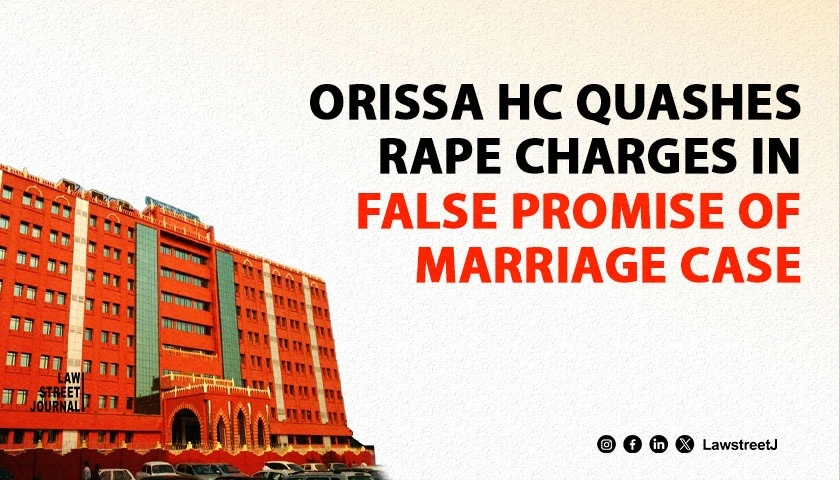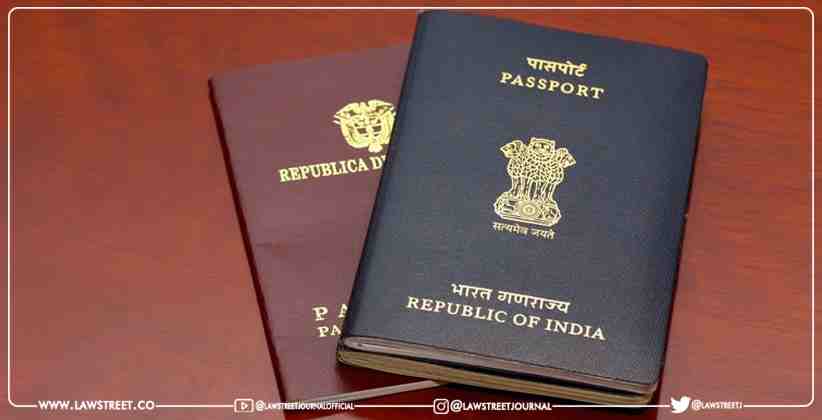Orissa: The Orissa High Court has delivered a landmark judgment questioning the criminalization of consensual sexual relationships on the grounds of a ‘false promise of marriage,’ emphasizing women’s sexual autonomy and challenging patriarchal presumptions.
Orissa High Court Ruling on ‘False Promise of Marriage’ and Women’s Autonomy
Justice Dr. S.K. Panigrahi made key observations while adjudicating a Criminal Miscellaneous Petition in the case of Manoj Kumar Munda v. State of Odisha, which challenged criminal proceedings involving charges under Sections 376(2)(a), 376(2)(i), 376(2)(n), 294, 506, and 34 of the IPC.
The court examined a case where the prosecutrix alleged rape based on a false promise of marriage in an FIR while simultaneously claiming to be legally married to the accused in a separate civil proceeding. The relationship had lasted nearly nine years, beginning in 2012 when both parties were pursuing a computer course.
Justice Panigrahi emphasized, “The law must not become an instrument of moral policing. It must acknowledge that sexual agency is not a promise, nor is it a contract that mandates a predetermined outcome. To assume otherwise is to deny women the full measure of their autonomy, desire, and choice.”
Legal Implications of Criminalizing Consensual Relationships in India
Drawing upon feminist philosophy, the court cited works by Judith Butler and Simone de Beauvoir to challenge the societal construct that links female sexuality exclusively to marriage. The judgment noted, “Marriage is a choice, not an inevitability. It is a legal recognition, not a moral recompense for physical union.”
The court questioned the automatic criminalization of failed relationships based on a “false promise of marriage,” stating that this assumption denies women the very agency the law purports to protect. However, it also cautioned that this principle should not become a tool for exploitation.
In conclusion, the court held that quashing the criminal proceedings was necessary to protect the integrity of the law and prevent it from being used to litigate personal disappointments or moral conflicts. The justice system is meant to address genuine crimes, not to serve as a battleground for failed relationships. The court allowed the Criminal Miscellaneous Petition and quashed the proceedings, finding that the allegations did not disclose the commission of a cognizable offense. It emphasized that each case must be weighed on its own merits, ensuring that justice remains both principled and compassionate.
Mr. Arun Kumar Acharya appeared for the Petitioner, while Ms. J. Sahoo (ASC) and Mr. K. A. Guru represented the Opposite Parties.
Case Title: Manoj Kumar Munda v. State of Odisha & Anr.




![Orissa HC awards Rs 10 lakh to father who lost child to stray dog attack [Read Judgment]](/secure/uploads/2023/12/lj_3371_Stray_dog_menace.jpg)
![Orissa HC rules in favour of BJDs Lok Sabha MP Anubhav Mohanty in divorce plea [Read Judgment]](/secure/uploads/2024/01/lj_2524_Anubhav_Mohanty.jpg)
![Indian Courts this Week: Law Street Journal's Weekly Round-Up of SC & HCs [Jan 1 - Jan 6]](/secure/uploads/2024/01/lj_9050_WhatsApp_Image_2024-01-06_at_12.07.10_PM.jpeg)




